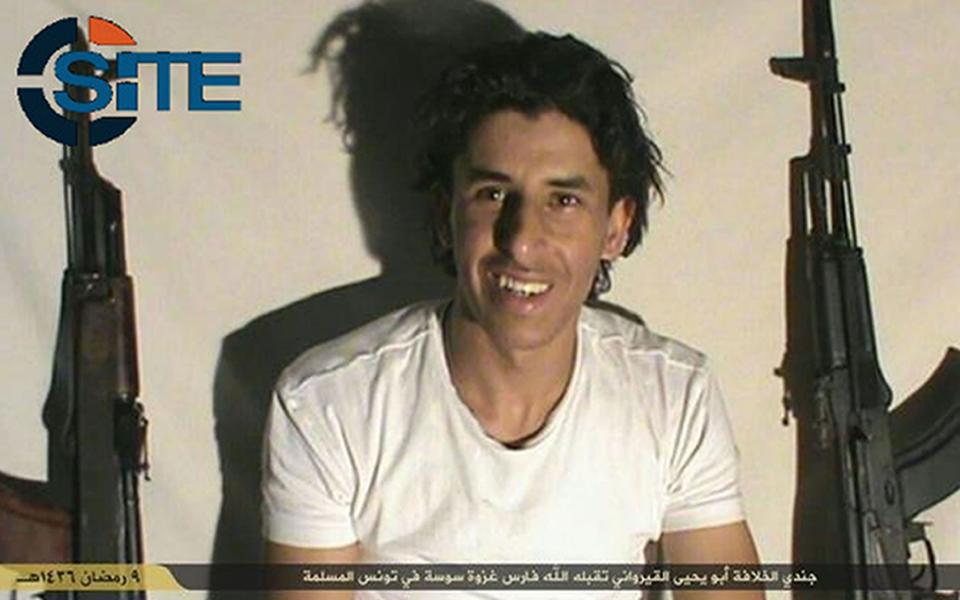Tunisia beach massacre police "shambolic and cowardly" as officers "fainted in terror"
The police response to the Tunisian beach massacre which killed 30 British tourists has been condemned as "shambolic and cowardly" by a coroner who revealed the only armed officer on the scene fainted in fear.
In the deadliest assault on British citizens overseas since the 9/11 attacks, Seifeddine Rezgui walked through the Imperial Marhaba hotel systematically shooting dead innocent holidaymakers.
But whilst some risked their lives to try and save others, the only armed officer on the scene fainted and abandoned his gun before hiding behind a parasol whilst other police units deliberately delayed their arrival.
Families of those killed wept as Judge Nicholas Loraine-Smith, sitting as a coroner, ruled they had been "unlawfully killed" whilst holidaying in the Mediterranean resort in June 2015. Many are now preparing to sue holiday company TUI for damages.
The inquest heard that police officers who could have been on the scene within three minutes took 45.
With the exception of two marine guards, no police entered the hotel grounds until the gunman had killed all 38 tourists, Judge Nicholas Loraine-Smith noted.
Of the two guards that did arrive at the scene, one had a grenade thrown at him by Rezgui and although it did not explode he "fainted through terror and panic, dropping his weapon in the process".
When he regained consciousness he went and hid behind a parasol, whilst his colleague took his shirt off so no one would realise he was an officer.
Meanwhile, a boat driver picked up the weapon and attempted to stop the Rezgui, who had taken performance enhancing drugs, but did not know how to fire the weapon.
Another police unit delayed arriving at the scene by collecting more weapons.
"They had everything they required to confront the gunman and could have been at the scene within minutes," Judge Loraine-Smith said. "The delay was deliberate and unjustifiable."
Only when the National Guard arrived was Rezgui shot dead.
He added: "The response by police was at best shambolic and at worst cowardly. It was certainly ineffective until the death of the gunman."
The terror cell which directed Rezgui to the five star hotel, just 18 months after he was radicalised, have yet to be arrested and the accomplice who dropped him at the scene has never been traced.
Despite criticism of police and security at the hotel, Judge Loraine-Smith said little could have been done to prevent the attack as any measures such as unarmed guards or more CCTV would not have stopped a terrorist with a Kalashnikov.
The only thing that would have made a "dramatic" difference to the bloodshed was armed guards stationed at the hotel, but this was not possible under Tunisian law, the coroner noted.
Tunisia | Latest travel advice
The attacks took place just three months after three militants stormed the Bardo Museum in the capital of Tunis and killed 21 people, mostly European tourists.
Official Foreign Office travel advice warned of a high threat of terrorism but did not advise against travel to the country and many said they were completely unaware of the risks.
The coroner found that despite TUI's responsibilty to inform the tourists of the official advice, the only reference to it in their documentation was in relation to visas which were not required for Tunisia.
A "crib sheet" for sales people to answer questions on the deteriorating security situation did not mention terrorism or where to find the Foreign Office travel advice.
However, the coroner rejected a request by families to conclude that neglect by TUI or the owners of the Riu Imperial Marhaba Hotel contributed to the deaths, saying that the law limited the circumstances in which he could make such a ruling.
He added: "The simple but tragic truth in this case is that a gunman armed with firearms, ammunition and grenades went to that hotel intending to kill as many tourists as he could."
Tunisia beach shooting map and explainer
Cheryl Stollery, whose was running away from the sound of gunfire with her husband John when he was gunned down, said: "I still believe questions have been left unanswered and responsibilities have not been accepted, so we are not able to rest or move on."
She added that "given the ever changing threats around the world and specifically those linked to holiday destinations, we unfortunately do not believe the Inquests heard will be the last to be brought before a British Coroner."
The families called upon tour operators to provide mandatory security information that informs tourist of any terrorist risks.
In a statement outside the Royal Courts of Justice after the hearing, Kylie Hutchison, from law firm Irwin Mitchell, which represents most of the victims' families said: "It is now crucial that the whole travel industry learns from what happened in Sousse to reduce the risk of similar catastrophic incidents in the future."
The coroner sad that he would take submissions before deciding on whether he could make any recommendations to prevent further deaths.
At a glance | Seifeddine Rezgui



